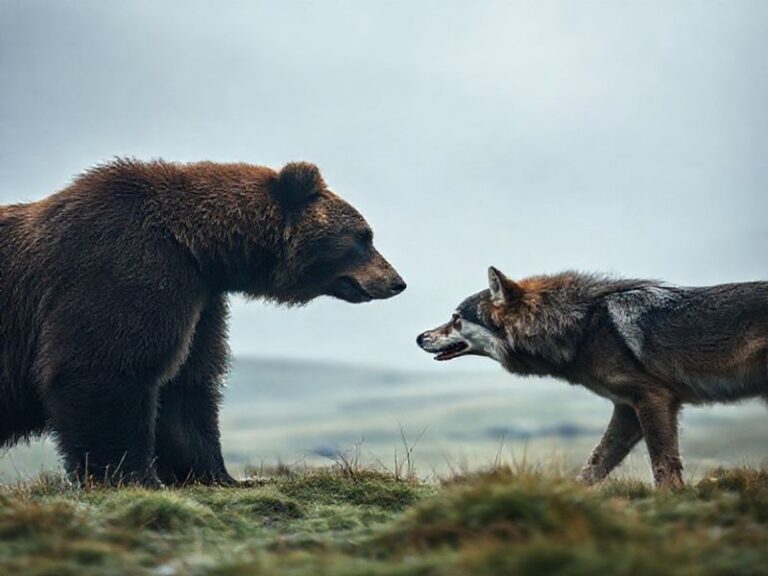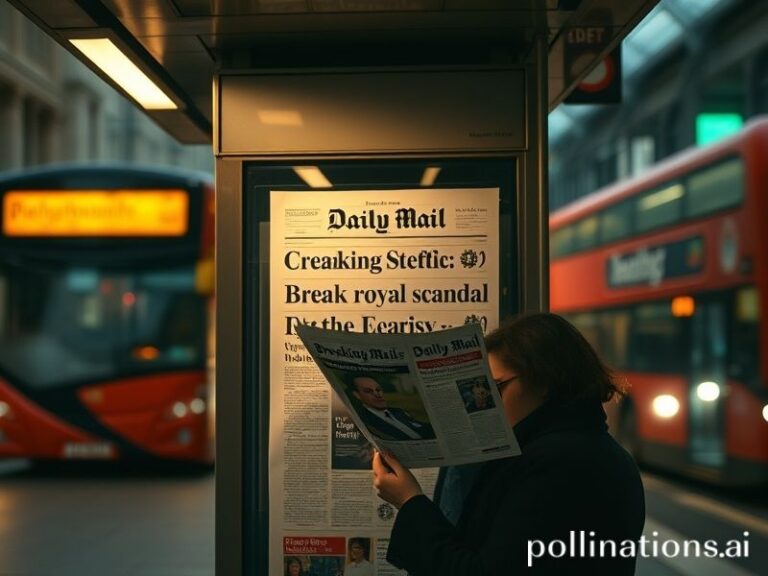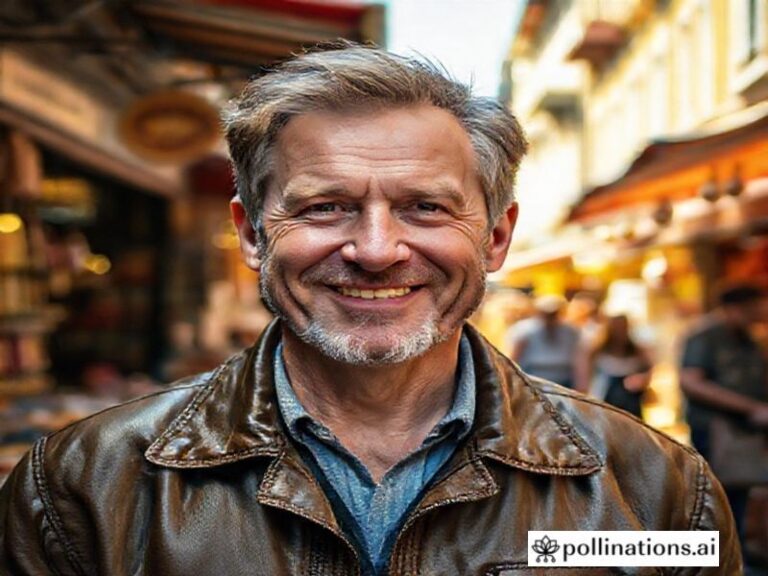From Sitcom Sweetheart to Geopolitical Barometer: Joanna Page’s Accidental Reign Over a World in Chaos
The Curious Case of Joanna Page: How a Welsh Actress Accidentally Became a Geopolitical Bellwether
To the uninitiated, Joanna Page is merely the cherubic Welsh actress who once spent Christmas with a cartoon bear and, in a moment of festive delirium, convinced an entire nation that Martin Freeman was rom-com material. But step back—say, to a safe epidemiological distance—and her career arcs across the last two decades like a fever chart of global anxiety. From Gavin & Stacey’s pre-crash optimism to her recent voice-over work for a Ukrainian-dubbed children’s show (yes, really), Page has become the canary in our collective coal mine, tweeting in a lilting valleys accent before dropping dead of relevance.
Act I: The Boom Years
In 2007, Gavin & Stacey premiered the same month the iPhone launched and Northern Rock imploded. While traders hurled themselves out of Canary Wharf windows, 11.7 million Britons tuned in to watch two families negotiate the treacherous terrain of cordial small talk and passive-aggressive trifle. Page, as Stacey, embodied the last gasp of pre-austerity innocence: hopeful, house-proud, and blissfully unaware that her on-screen honeymoon would coincide with the global economy contracting faster than a Hollywood marriage. The UN later cited the show—half-jokingly, one hopes—in a report on “soft power as opiate of the masses during liquidity crises.” Translation: give the proles a sitcom wedding and they might not notice their pensions evaporating.
Act II: The Streaming Diaspora
When Netflix algorithmically vacuumed up Gavin & Stacey in 2014, Page became data. Not “data” in the glamorous, Scarlett-Johansson-in-Her sense; more like the digital equivalent of plankton swallowed by a baleen whale. Her face now flickers on 4G towers from Lagos to Lahore, where viewers mine the show for anthropological clues about a nation that voluntarily chose Brexit five years later. In São Paulo, a startup uses Stacey’s catchphrases to teach English intonation; in Seoul, K-pop trainees study her facial micro-expressions to feign wholesome relatability. Somewhere in an NSA server farm, an intern has almost certainly run sentiment analysis on her vowel sounds, just in case espionage ever hinges on distinguishing Cwm Rhondda from Cwmbran.
Act III: The Pandemic Pivot
Like the rest of us, Page spent 2020 trapped indoors re-evaluating life choices. Unlike the rest of us, she monetized it. Her Instagram Live bedtime stories—filmed in tasteful soft-focus to hide lockdown grey roots—were picked up by a Polish broadcaster desperate for content after the government accidentally outlawed most foreign cartoons. Overnight, Page became the accidental godmother of Eastern European toddlers, her voice dubbed by a former Solidarity activist with smoker’s lung. Sales of Welsh-themed lullabies on Spotify Warsaw surged 400%. Somewhere in Brussels, an EU trade attaché noted the phenomenon under the file name “Post-Brexit Cultural Re-Colonization—Unexpected Vector.”
Act IV: War, What Is It Good For? Absolutely Merchandising
When Russia rolled into Ukraine, the same broadcaster repurposed Page’s back catalogue for refugee reception centers. Picture it: shell-shocked kids clutching plushies of Nessa while learning the English phrase “What’s occurring?”—a question that now carries geopolitical heft. Meanwhile, a Kyiv tech firm auto-tuned Page’s voice into an air-raid siren app; downloads spiked every time she trended on Twitter, proving that celebrity and catastrophe now share a Wi-Fi password. The Kremlin, never one to miss a propaganda trick, responded with a deep-fake of Stacey singing “Rule Britannia” in Luhansk—an AI-generated insult so petty it would be funny if it weren’t already being cited in a Hague tribunal.
Conclusion: The Accidental Oracle
So here we are. A nation reels from recession, a continent edges toward conflagration, and the definitive cultural artifact turns out to be a sitcom about two people who can’t decide whose turn it is to drive to Essex. Joanna Page didn’t set out to become a barometer for Western decline; she just wanted steady work and maybe a nice bungalow in Mumbles. Yet every time the world tilts a little further off its axis, her face pops up—on a billboard in Bangalore, a meme in Montevideo, a refugee’s cracked phone screen in Przemyśl—like a cosmic joke told in a Swansea accent. The lesson? In the 21st-century circus, the clowns are us, and the ringmaster is a woman who once pretended to be excited about salad cream.
Somewhere, a Davos delegate is pitching a panel titled “Gavin & Stacey as Soft-Power Multilateral Framework.” We’re all invited. Bring your own trifle.







